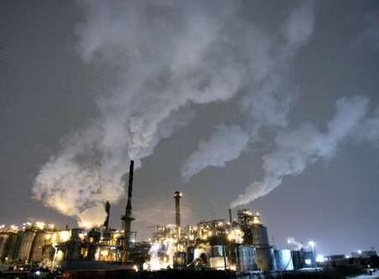Global warming man-made, will continue
(AP)Updated: 2007-02-02 19:11
PARIS - International scientists and officials hailed a report Friday saying that global warming is "very likely" caused by man, and that hotter temperatures and rises in sea level "would continue for centuries" no matter how much humans control their pollution.
A top US government scientist, Susan Solomon, said "there can be no question that the increase in greenhouse gases are dominated by human activities."
The 21-page summary of the panel's findings released Friday represents the most authoritative science on global warming. The panel comprises hundreds of scientists and representatives of 113 governments.
The scientists said the changes are "very likely" caused by human activity, a phrase that translates to a more than 90 percent certainty that global warming is caused by man's burning of fossil fuels. That was the strongest conclusion to date, making it nearly impossible to say natural forces are to blame.
The report said no matter how much civilization slows or reduces its greenhouse gas emissions, global warming and sea level rise will continue on for centuries.
"This is just not something you can stop. We're just going to have to live with it," co-author Kevin Trenberth, director of climate analysis for the National Center for Atmospheric Research in Boulder, Colo., told The Associated Press in an interview. "We're creating a different planet. If you were to come up back in 100 years time, we'll have a different climate."
Sharon Hays, associate director of the Office of Science and Technology Policy at the White House, welcomed the strong language of the report.
"It's a significant report. It will be valuable to policy makers," she told The Associated Press in an interview in Paris.
Hays stopped short of saying whether or how the report could bring about change in President Bush's policy about greenhouse gas emissions.
The panel predicted temperature rises of 2-11.5 degrees Fahrenheit by the year 2100. That was a wider range than in the 2001 report.
However, the panel also said its best estimate was for temperature rises of 3.2-7.1 degrees Fahrenheit. In 2001, all the panel gave was a range of 2.5-10.4 degrees Fahrenheit.
On sea levels, the report projects rises of 7-23 inches by the end of the century. An additional 3.9-7.8 inches are possible if recent, surprising melting of polar ice sheets continues.
Trenberth said scientists do worry that world leaders will take the message in the wrong way and throw up their hands. Instead, the scientists urged leaders to reduce emissions and also adapt to a warmer world with wilder weather.
"The point here is to highlight what will happen if we don't do something and what will happen if we do something," co-author Jonathan Overpeck at the University of Arizona said. "I can tell if you will decide not to do something the impacts will be much larger than if we do something."
The panel, created by the United Nations in 1988, releases its assessments every five or six years - although scientists have been observing aspects of climate change since as far back as the 1960s. The reports are released in phases - this is the first of four this year.
The next report is due in April and will discuss the effects of global warming. But that issue was touched upon in the current document.
|
||
|
||
|
|

